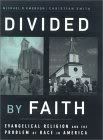Depression demarcates the borders of my life in some ways. I place my memories into boxes in my mind labeled ‘before’ and ‘after’. ‘During’ doesn’t really need a box; when the darkness truly fell after my years of flirtation with it, life stopped. I rarely moved from a chair for nearly a year, and most attempts at conversation were met with a blank stare. Apathetic doesn’t really begin to touch where I was.
So yesterday, when a friend asked me how depression had changed my spirituality, I was rather alarmed to discover I didn’t have an answer. I mumbled something completely unsatisfactory to us both, my mind reeling that this was a question that I’d never thought through. When I think of depression, and when most people ask me about depression, it’s usually about how to cope. What are the strategies and skills required to make it through another day? These are crucial questions, and things anyone struggling with depression has to have an answer to in order to move through life. On my dark days, I continue to desperately need these tactics. But perhaps I’ve been terribly remiss in not taking note of how my struggle with this beast has altered my faith. It is sometimes easy to see ways in which my methods of relating with people have changed, but what about the manner in which I relate to God?
I should begin by noting that I would not have described myself as a Christian during that time by any stretch. Depression formed the dark and solitary womb of my faith. I was tied to an extremely poisonous, nearly fatal, umbilical cord, but paradoxically I felt protected and removed from the harsh reality surrounding me. After gestating there for a good long while, it was time to either be reborn or die. It sounds melodramatic, but those were the options. To be honest, I still don’t know what made me choose life except the grace of an unknown God. The birth process, if you will allow me continue with the metaphor, was excruciatingly painful and, to my mind, far too prolonged. I had to completely relearn how to move in the world. How to talk to people. How to smile (and mean it). How to hold down a job. I felt much like Bill Murray in What About Bob? – ‘Baby steps out of bed… baby steps to the closet… baby steps to put matching clothes on…’. Everything was an exercise of will, and on many days I failed completely. I would get to the closet, become overwhelmed by the mere prospect of getting dressed, knowing that the next step was to leave the house, and crawl back to bed, defeated.
Luckily, I was surrounded by a loving and patient family, one of whom came to l’abri during the time I was surfacing. After spending a term there, he invited me to come and join him. Despite my fears that I was going to be judged and condemned, and my deep antipathy towards Christians, after many promises on his part I decided to go. After a couple of terms of intellectual challenge and, more importantly, grace in the face of my antagonism, I began to realize that Christianity could be a lived reality.
 So that is the abridged version of my route to faith, and lays the backdrop for the original question: What did it do to my faith as I currently live it?
So that is the abridged version of my route to faith, and lays the backdrop for the original question: What did it do to my faith as I currently live it?
One of the first things that comes to mind is that I have a more holistic faith because of it. Depression forces you to recognize the connectedness of things. For example, when I keep a normal sleep schedule, eat well, and exercise, my mental state drastically improves. I can’t separate my emotions from my body any more than I can excise my soul from it. I had to learn to recognize and act upon things when they started to get out of balance, especially as I got off of the many medications I was taking. I think this awareness carries over to my faith, as I can perceive fairly rapidly when things start to get out of control, and I’ve learned to discipline myself to respond to the signs before they become unmanageable.
In addition to this inner connectedness, I think my awareness of how connected we all are to each other has changed. In retrospect I can look back and see how vital the people in my life were during that time, particularly my family. I was fairly non-cognizant of it then, and even as I began to move out of the worst of it, I don’t think I realized what was going on. But now I see that the support, in tangible ways as well as the desperate prayers on my behalf, were critical. Maybe without those prayers I would have chosen death. The more I understand this, the more passionate I am about what it means to be a part of the body of Christ. Our responsibility to do what we can to stay healthy, so that we can in turn support the members that are struggling. The importance of asking for help when we need it. And above all, the importance of prayer. I don’t know how God moves in the world, and the way He answers prayer is difficult, if not impossible, to pinpoint with any measure of certainty. But I know that He moves, and I know that the unseen hand of prayer holds up many a person without their ever realizing it. I can’t prove it, certainly, but I believe it saved me. Therefore I think the way I pray has changed… I feel an urgency to it that I might not have otherwise, particularly for those I know who are wading through the morass.
Baby steps are still a daily part of my life. The coping skills I learned to get through the day I also use to plod through heavy spiritual issues that I find overwhelming. Part of being able to take the steps has been learning to be a ‘truth-teller’ in my own life. To change my epistemology from “I feel it is true, ergo it must be so” to “God/the nature of reality says it is true, ergo it is so.” Learning to keep my emotions in dialogue with my reason, Scripture, other people, and the world at large helps me to maintain a bit of sanity. Knowing my history and my habits, this exercise forces me to practice active discernment between truth and lie, and draws me closer to the God of truth.
I’m sure there are lots of other places that depression touches spirituality, but the final one I’ll mention pertains to shame. I can’t untangle all the causes of my descent, but I know at least one of the factors is the vast quantity of bad choices I made over the years. Shame heaped on shame, and I couldn’t seem to get out from under it. A very wise mentor greeted my confessions with compassion rather than judgment, and in that way imaged the grace of God to me. He also, while never minimizing the value of reflection and introspection, reminded me that we can’t live in the past. All we can do is move forward and take from it the lessons it provides. It is pride, not piety, which causes us to hang on to self-condemnation. This very human face of grace opened the door to a deeper understanding of the nature of confession and forgiveness, and I am deeply moved every time I stop and consider the depth of the love and mercy of God.
So why write (and share) all this? I suppose, first, it is a good exercise for me to look back upon the road I have traveled and discover gratitude anew. One of the coolest, most amazing things about the God of the Bible is that He doesn’t stand at the edge of the pits we find ourselves in, hollering at us to pull it together and get out. He got incarnate. He gets dirty. He jumps down there with us and is proactive in helping us out. Even when it is too dark to see Him, I believe He is there, offering help and hope.
And I wanted to share it because suffering, rather or not it is from depression, is a common human experience. Art resonates with us when we see truth in it, and I find the art that resonates most contains the truths both of suffering and redemption. It can be so easy to think I’m ‘deep’ just because I’ve suffered, but without the element of redemption and growth, tragedy is just, well, tragic.
This is getting long, but I want to say just a few more things. First, I am not grateful for depression. I am grateful that God can ‘use shit for fertilizer’, but I think there is a huge danger of attributing evil to God just because He can transform it to good. Make no mistake, depression is evil, and one of the things I look forward to most in the kingdom is the full release from it. Second, we sometimes joke that ‘nothing makes you crave a cigarette like the pure mountain air.’ You understand. People are stupid that way. Finally, if you have read this far, Thanks. If you’ve made it here, you probably know me. And if you know me, you form part of the community that sustains me. So again, Thanks.










4 comments:
reading your blog, well, i would have to say that you are your father's child, in terms of your use of metaphor:)
this is a helpful insight in how depression can be experienced...it is so often stigmatized that people dont even get to share and speak about how they feel due to fear of how others might respond...because we as a society dont know how to respond to things that we dont know how to resolved immediately, or have someone/something to hold responsible for...in someways, i wonder at times if the whole of creation experiences depression as a real consequence of sin, and that it will continue to live in this hopeless state if it does not aspire and look toward the hope that Christ's redemption offers...
this post makes me want to sprig up tiny little wings and fly around the sky...
Thankful of the freedom to be on the "after" side of the darkness.
Thankful for people like you who do not live in fear to tell the story of depression.
love,
caits
p.s. great answer
I love your story -- and the telling of it. I count it a privilege to have been present during those early weeks at L'Abri, when you were asking tough questions and starting down the path of "truth-telling." I'll never forget the walk we took up toward Villars one afternoon, when you began to tell me a bit of your story. I honestly believe that knowing you (even for a short time) prepared me to help walk alongside another friend as she walked a very similar journey. She is now, as you are, happy and healthy and growing. I hope our paths will cross again...Much love, SarahZ
All I can say is Holy Shit! Thanks alot for sharing all of that. Ever since I have gotten back to the USA I have been hoping that someone would just say something I could agree with and understand. You did it! Even though I am not someone who suffers from depression I could hear your athenticity. I also very much understand what you said about guilt, the darkness which surronds my own guilt deepens only when I pridefully try to dig myself free from it.
Post a Comment